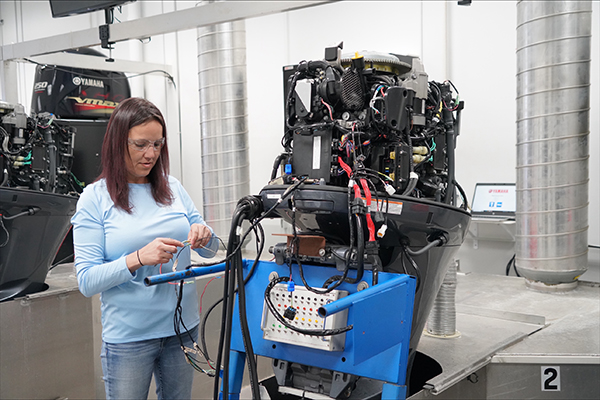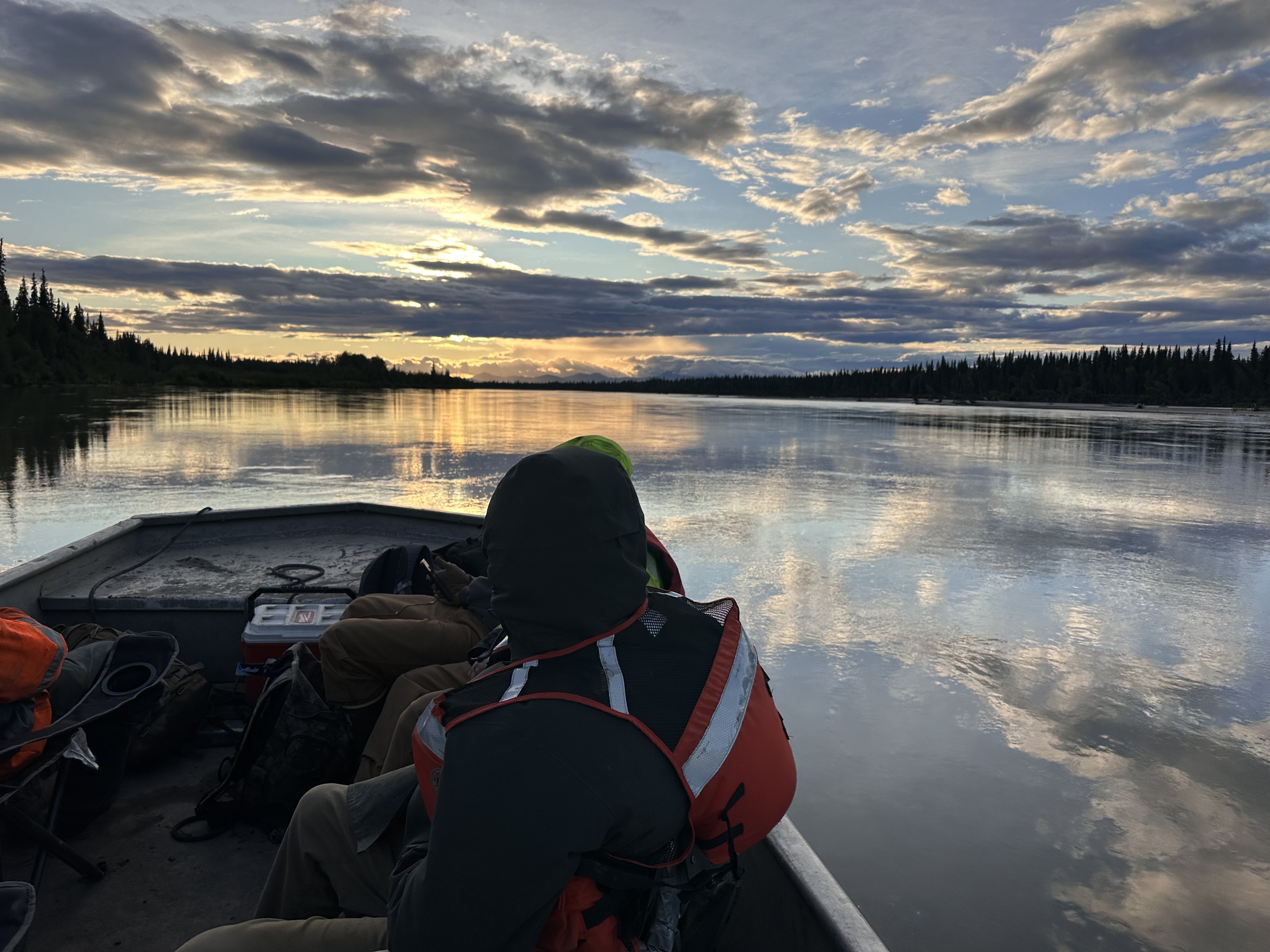“In rural Alaska, outboards are everything. If your motor breaks, you could miss your chance to hunt or fish, and that could mean not having enough food for the winter,” said Rene Egrass. “The fact that I can understand outboard engines and help people in my community is life changing.”
Egrass’ story displays the broader significance of why great Yamaha technicians are so important in Alaska. The state’s maritime economy stretches across 34,000 miles of coastline, generates millions of dollars and produces more than 60 percent of the nation’s seafood. Behind this vital industry is a reliance on outboard motors, and a growing need for skilled technicians who can keep them running.
An Alaskan Native and student at Prince William Sound College (PWS) in Alaska, Egrass recently completed Yamaha Marine University™’s Inline Engine Systems and Yamaha Diagnostics Systems course at Yamaha’s headquarters in Kennesaw, Georgia. Her participation helps address a critical need in rural Alaska, access to reliable, trained marine technicians.

Egrass’ dedication to training highlights the growing impact of Yamaha’s long-term workforce development initiatives in the state, where skilled marine technicians are hard to find. In remote communities like McGrath, where Egrass is from, the nearest certified technician is typically located at a dealership accessible only by air, creating financial and logistical barriers to keeping outboards running.
Her introduction to outboard maintenance began close to home. After seeking help on social media for her personal tools and outboard motor, a neighbor directed her to a community education course led by Anthony Gerasch, a Yamaha Master Technician and instructor at Prince William Sound College. That course not only helped her repair her own equipment but also introduced her to the pathways available for professional marine technician training.

“When I first met Renae, she was eager to learn and had a real drive to take care of her own engine,” Gerasch said. “It’s why I love working at Prince William Sound College (PWS). I’m not only helping people launch their careers at dealerships, I’m also helping rural and Native communities that depend on outboards for their way of life.”
Egrass later enrolled in the 15-week outboard maintenance certification program at PWS. Egrass, a mother of three, hopes her certification will make a lasting impact on her community.
“My goal is to show my kids that anything is possible,” she said. “I want them to see that even in a small community, you can work hard, learn and make a difference.”
Back to Blue Life
Egrass’ story displays the broader significance of why great Yamaha technicians are so important in Alaska. The state’s maritime economy stretches across 34,000 miles of coastline, generates millions of dollars and produces more than 60 percent of the nation’s seafood. Behind this vital industry is a reliance on outboard motors, and a growing need for skilled technicians who can keep them running.
An Alaskan Native and student at Prince William Sound College (PWS) in Alaska, Egrass recently completed Yamaha Marine University™’s Inline Engine Systems and Yamaha Diagnostics Systems course at Yamaha’s headquarters in Kennesaw, Georgia. Her participation helps address a critical need in rural Alaska, access to reliable, trained marine technicians.

Egrass’ dedication to training highlights the growing impact of Yamaha’s long-term workforce development initiatives in the state, where skilled marine technicians are hard to find. In remote communities like McGrath, where Egrass is from, the nearest certified technician is typically located at a dealership accessible only by air, creating financial and logistical barriers to keeping outboards running.
Her introduction to outboard maintenance began close to home. After seeking help on social media for her personal tools and outboard motor, a neighbor directed her to a community education course led by Anthony Gerasch, a Yamaha Master Technician and instructor at Prince William Sound College. That course not only helped her repair her own equipment but also introduced her to the pathways available for professional marine technician training.

“When I first met Renae, she was eager to learn and had a real drive to take care of her own engine,” Gerasch said. “It’s why I love working at Prince William Sound College (PWS). I’m not only helping people launch their careers at dealerships, I’m also helping rural and Native communities that depend on outboards for their way of life.”
Egrass later enrolled in the 15-week outboard maintenance certification program at PWS. Egrass, a mother of three, hopes her certification will make a lasting impact on her community.
“My goal is to show my kids that anything is possible,” she said. “I want them to see that even in a small community, you can work hard, learn and make a difference.”
Back to Blue Life
